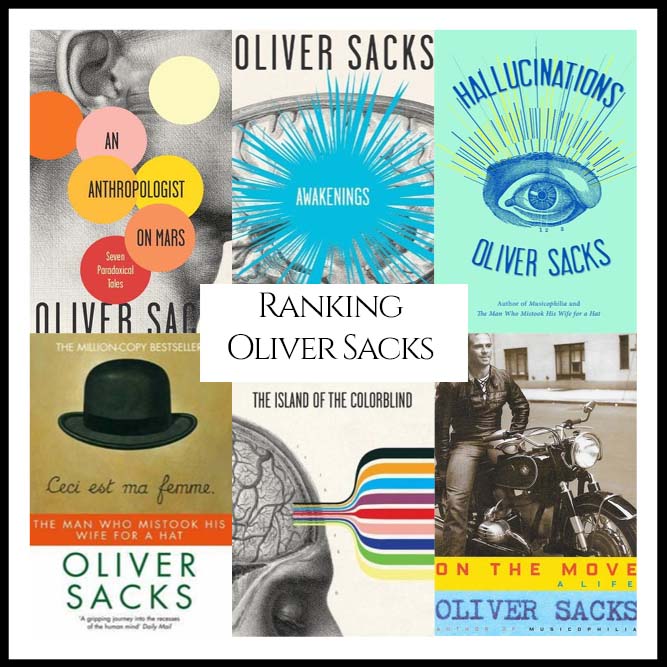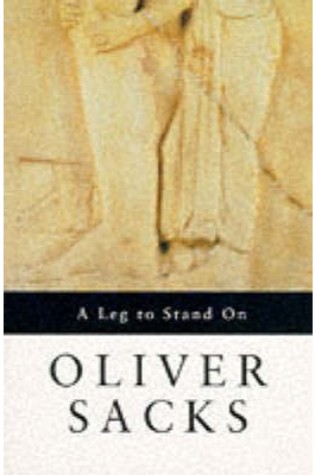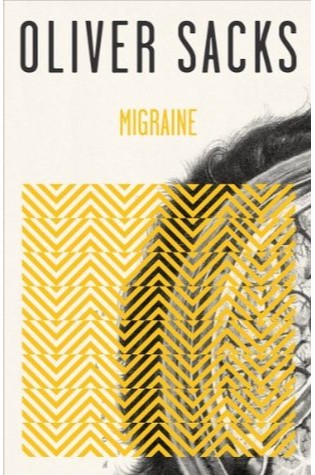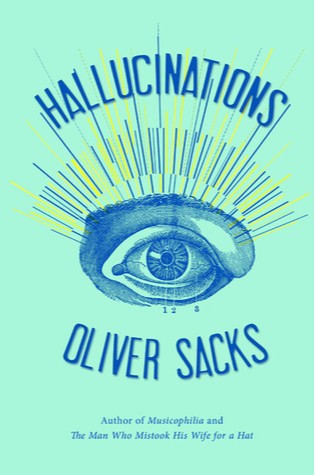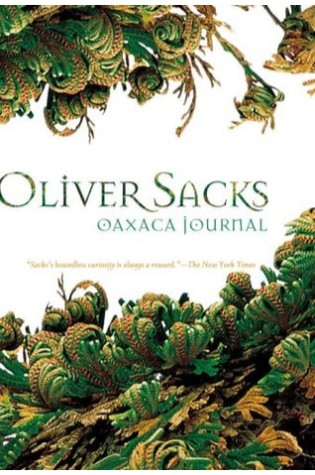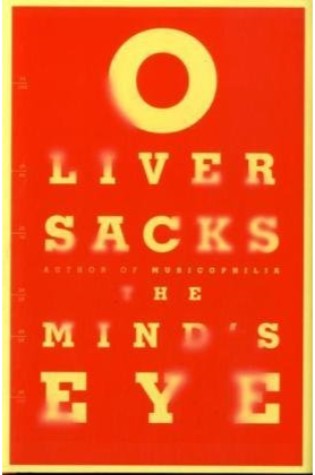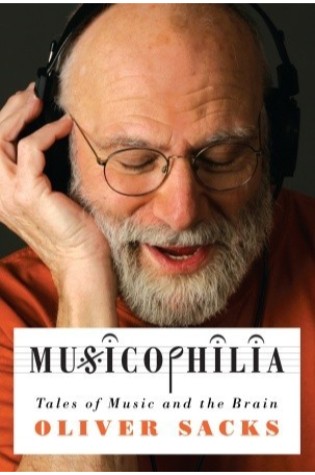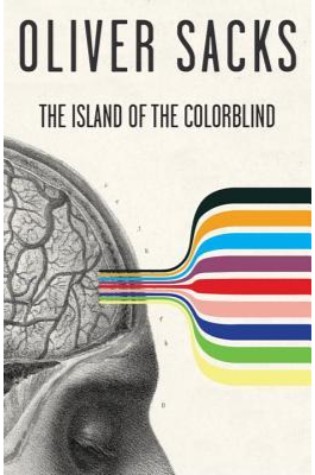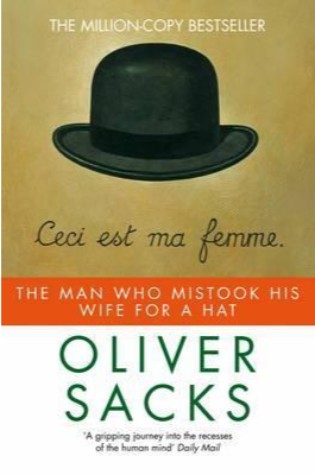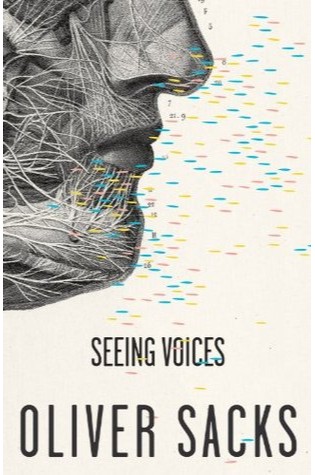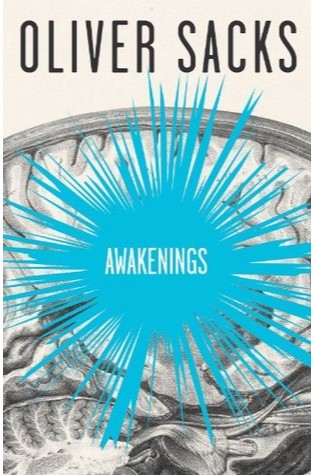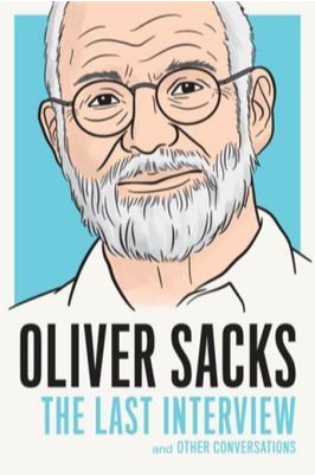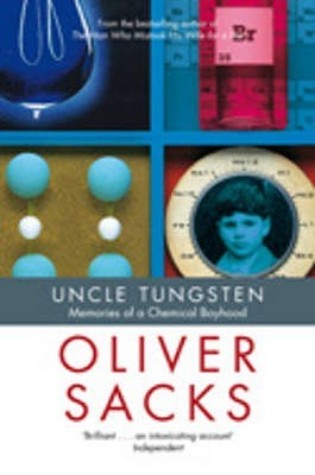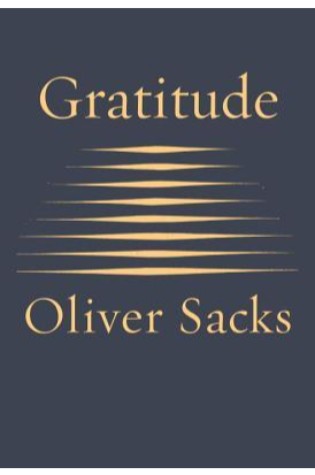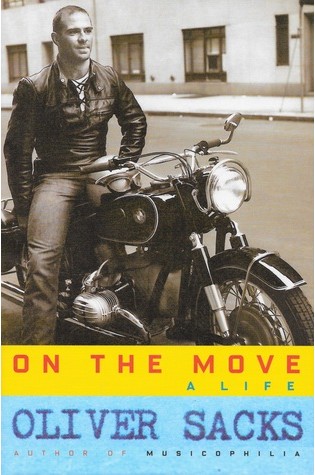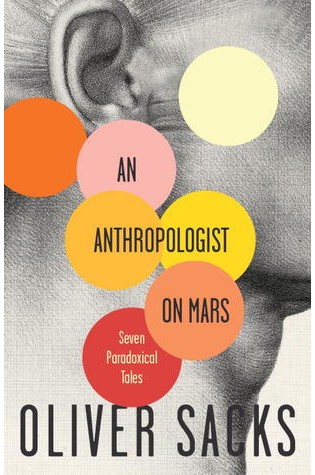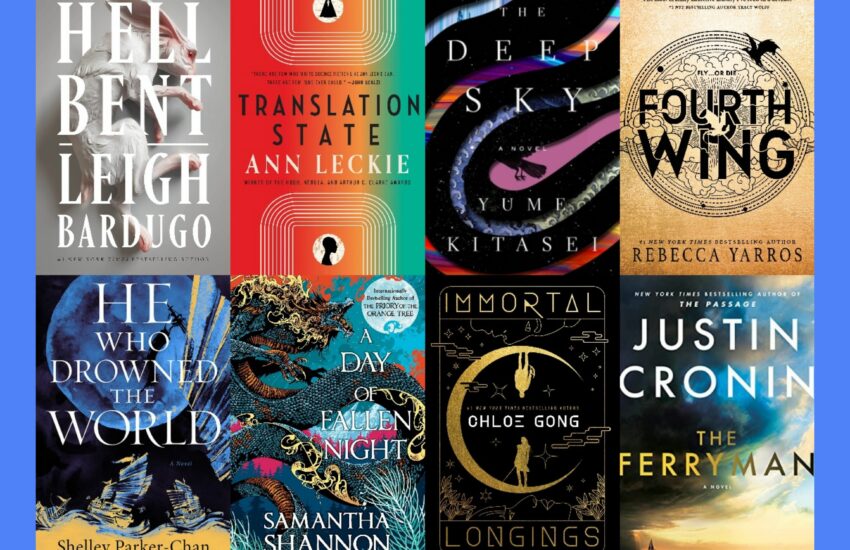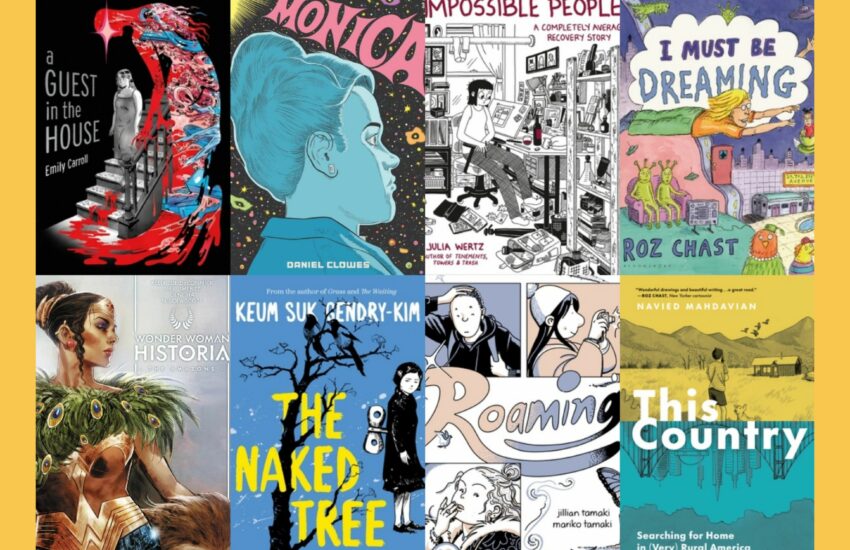Ranking Author Oliver Sacks’s Best Books (A Bibliography Countdown)
“What are Oliver Sacks Best Books?” We looked at all of Sacks’s authored bibliography and ranked them against one another to answer that very question!
We took all of the books written by Oliver Sacks and looked at their Goodreads, Amazon, and LibraryThing scores, ranking them against one another to see which books came out on top. The books are ranked in our list below based on which titles have the highest overall score between all 3 review sites in comparison with all of the other books by the same author. The process isn’t super scientific and in reality, most books aren’t “better” than other books as much as they are just different. That being said, we do enjoy seeing where our favorites landed, and if you aren’t familiar with the author at all, the rankings can help you see what books might be best to start with.
The full ranking chart is also included below the countdown on the bottom of the page.
Happy Scrolling!
The Top Book’s Of Oliver Sacks
14 ) A Leg to Stand On
- Goodreads: 13
- Amazon: 15
- LibraryThing: 9
The author of twelve books, including the bestselling Awakenings, The Man Who Mistook His Wife For a Hat, Musicophilia, and Hallucinations, Oliver Sacks is internationally renowned for his compassionate approach to patients affected by profound neurological disorders. Yet when an accident on an uninhabited mountain in Norway leaves Dr. Sacks with a severe leg injury, he becomes the patient. During what should have been a routine recovery period, he experiences an overwhelming sensation that his injured leg is now absent from his body, and indeed from his physical awareness. In A Leg To Stand On, one of Dr. Sacks’ most personal works, this disturbing experience is the starting point of a fascinating journey through the mysteries of perception, the physical substance of our identities, and the experience of being a patient.
Purchase / Learn More
14 ) Migraine
- Goodreads: 14
- Amazon: 13
- LibraryThing: 10
The many manifestations of migraine can vary dramatically from one patient to another, even within the same patient at different times. Among the most compelling and perplexing of these symptoms are the strange visual hallucinations and distortions of space, time, and body image which migraineurs sometimes experience. Portrayals of these uncanny states have found their way into many works of art, from the heavenly visions of Hildegard von Bingen to Alice in Wonderland. Dr. Oliver Sacks argues that migraine cannot be understood simply as an illness, but must be viewed as a complex condition with a unique role to play in each individual’s life.
Purchase / Learn More
13 ) Hallucinations
- Goodreads: 12
- Amazon: 9
- LibraryThing: 14
An investigation into the types, physiological sources, and cultural resonances of hallucinations traces everything from the disorientations of sleep and intoxication to the manifestations of injury and illness.
Purchase / Learn More
12 ) Oaxaca Journal
- Goodreads: 15
- Amazon: 3
- LibraryThing: 15
Ferns are what lured Oliver Sacks to Oaxaca, but those who know him will expect his journal to be filled with much more – and they won’t he disappointed.” “It’s a diverse, casually erudite assemblage of professional and amateur botanists who gather in this extraordinary corner of Mexico, each bringing a different perspective and fresh insights to the endeavor. And what a richly varied part of the world! Whereas New England has a hundred fern varieties, the Oaxaca area boasts nearly seven hundred; village marketplaces sell at least two dozen kinds of chili pepper, from mild to mind-bogglingly hot. Here too is a bird-watcher’s paradise teeming with avian life, and an archaeologist’s dream filled with ancient ruins that echo with pre-Columbian legend. And this is where the New World gave the Old World the delicious gift of chocolate, once reserved – on pain of death – for Aztec royalty.” “Day by day, as Sacks and his colleagues explore, new sights and discoveries spark surprising, enlightening connections. By the time their all-too brief adventure – and this journal – is complete, we have toured not merely Oaxaca itself, but a whole world of history, science, and wonder.
Purchase / Learn More
11 ) The Mind’s Eye
- Goodreads: 9
- Amazon: 9
- LibraryThing: 11
Includes stories of people who are able to navigate the world and communicate with others despite losing what many of us consider indispensable senses and faculties: the power of speech, the capacity to recognize faces, the sense of three-dimensional space, the ability to read, and the sense of sight. This book is a testament to the complexity of vision and the brain and to the power of creativity and adaptation, and it provides a whole new perspective on the power of language and communication, as we try to imagine what it is to perceive through another person’s eyes, or another person’s mind.
Purchase / Learn More
10 ) Musicophilia: Tales of Music and the Brain
- Goodreads: 9
- Amazon: 6
- LibraryThing: 13
Oliver Sacks explores the place music occupies in the brain and how it affects the human condition. In Musicophilia, he shows us a variety of what he calls “musical misalignments.” Among them: a man struck by lightning who suddenly desires to become a pianist at the age of forty-two; an entire group of children with Williams syndrome, who are hypermusical from birth; people with “amusia,” to whom a symphony sounds like the clattering of pots and pans; and a man whose memory spans only seven seconds – for everything but music. Dr. Sacks describes how music can animate people with Parkinson’s disease who cannot otherwise move, give words to stroke patients who cannot otherwise speak, and calm and organize people who are deeply disoriented by Alzheimer’s or schizophrenia.
Purchase / Learn More
9 ) The Island of the Colorblind
- Goodreads: 11
- Amazon: 6
- LibraryThing: 8
Oliver Sacks has always been fascinated by islands–their remoteness, their mystery, above all the unique forms of life they harbor. For him, islands conjure up equally the romance of Melville and Stevenson, the adventure of Magellan and Cook, and the scientific wonder of Darwin and Wallace. Drawn to the tiny Pacific atoll of Pingelap by intriguing reports of an isolated community of islanders born totally color-blind, Sacks finds himself setting up a clinic in a one-room island dispensary, where he listens to these achromatopic islanders describe their colorless world in rich terms of pattern and tone, luminance and shadow. And on Guam, where he goes to investigate the puzzling neurodegenerative paralysis endemic there for a century, he becomes, for a brief time, an island neurologist, making house calls with his colleague John Steele, amid crowing cockerels, cycad jungles, and the remains of a colonial culture. The islands reawaken Sacks’s lifelong passion for botany–in particular, for the primitive cycad trees, whose existence dates back to the Paleozoic–and the cycads are the starting point for an intensely personal reflection on the meaning of islands, the dissemination of species, the genesis of disease, and the nature of deep geologic time. Out of an unexpected journey, Sacks has woven an unforgettable narrative which immerses us in the romance of island life, and shares his own compelling vision of the complexities of being human. From the Hardcover edition.
Purchase / Learn More
8 ) The Man Who Mistook His Wife for a Hat
- Goodreads: 4
- Amazon: 13
- LibraryThing: 6
THE MAN WHO MISTOOK HIS WIFE FOR A HAT brings together twenty-four of Oliver Sacks’ most fascinating and beloved case studies. The patients in these pages are confronted with almost inconceivably strange neurological disorders; in Sacks’ telling, their stories are a profound testament to the adaptability of the human brain and the resilience of the human spirit. Dr. Sacks treats each of his subjects—the amnesic fifty-year-old man who believes himself to be a young sailor in the Navy, the “disembodied” woman whose limbs have become alien to her, and of course the famous man who mistook his wife for a hat—with a deep respect for the unique individual living beneath the disorder. These tales inspire awe and empathy, allowing the reader to enter the uncanny worlds of those with autism, Alzheimer’s, Tourette’s syndrome, and other unfathomable neurological conditions. “One of the great clinical writers of the 20th century” (The New York Times), Dr. Sacks brings to vivid life some of the most fundamental questions about identity and the human mind.
Purchase / Learn More
7 ) Seeing Voices
- Goodreads: 4
- Amazon: 6
- LibraryThing: 11
Like The Man Who Mistook His Wife for a Hat, this is a fascinating voyage into a strange and wonderful land, a provocative meditation on communication, biology, adaptation, and culture. In Seeing Voices, Oliver Sacks turns his attention to the subject of deafness, and the result is a deeply felt portrait of a minority struggling for recognition and respect–a minority with its own rich, sometimes astonishing, culture and unique visual language, an extraordinary mode of communication that tells us much about the basis of language in hearing people as well. Seeing Voices is, as Studs Terkel has written, “an exquisite, as well as revelatory, work.”
Purchase / Learn More
6 ) Awakenings
- Goodreads: 3
- Amazon: 9
- LibraryThing: 7
Awakenings–which inspired the major motion picture–is the remarkable story of a group of patients who contracted sleeping-sickness during the great epidemic just after World War I. Frozen for decades in a trance-like state, these men and women were given up as hopeless until 1969, when Dr. Oliver Sacks gave them the then-new drug L-DOPA, which had an astonishing, explosive, “awakening” effect. Dr. Sacks recounts the moving case histories of his patients, their lives, and the extraordinary transformations which went with their reintroduction to a changed world.
Purchase / Learn More
5 ) Oliver Sacks: The Last Interview
- Goodreads: 8
- Amazon: 3
- LibraryThing: 4
An extraordinary collection of interviews with the beloved doctor and author, whose research and books inspired generations of readers. Oliver Sacks—called “the poet laureate of medicine” by the New York Times—illuminated the mysteries of the brain for a wide audience in a series of richly acclaimed books, including Awakenings and The Man Who Mistook His Wife for a Hat, and numerous The New Yorker articles. In this collection of interviews, Sacks is at his most candid and disarming, rich with insights about his life and work. Any reader of Oliver Sacks will find in this book an entirely new way of looking at a brilliant writer.
Purchase / Learn More
4 ) Uncle Tungsten
- Goodreads: 7
- Amazon: 1
- LibraryThing: 5
Long before Oliver Sacks became a distinguished neurologist and bestselling writer, he was a small English boy fascinated by metals-also by chemical reactions (the louder and smellier the better), photography, squids and cuttlefish, H.G. Wells, and the periodic table. In this endlessly charming and eloquent memoir, the author chronicles his love affair with science and the magnificently odd and sometimes harrowing childhood in which that love affair unfolded. In Uncle Tungsten we meet Sacks’ extraordinary family, from his surgeon mother, who introduces the fourteen-year-old Oliver to the art of human dissection, and his father, a family doctor who imbues in his son an early enthusiasm for housecalls, to his “Uncle Tungsten,” whose factory produces tungsten-filament light bulbs. We follow the young Oliver as he is exiled at the age of six to a grim, sadistic boarding school to escape the London Blitz, and later watch as he sets about passionately reliving the exploits of his chemical heroes, in his own home laboratory. Uncle Tungsten is a crystalline view of a brilliant young mind springing to life, a story of growing up which is by turns elegiac, comic, and wistful, full of the electrifying joy of discovery.…
Purchase / Learn More
2 ) Gratitude
- Goodreads: 2
- Amazon: 9
- LibraryThing: 1
In July 2013, Oliver Sacks turned eighty and wrote [a] … piece in The New York Times about the prospect of old age and the freedom he envisioned for himself in binding together the thoughts and feelings of a lifetime. Eighteen months later, he was given a diagnosis of terminal cancer–which he announced publically in another piece in The New York Times. Gratitude is Sacks’s meditation on why life [continued] to enthrall him even as he [faced] the all-too-close presence of his own death, and how to live out the months that [remained] in the richest and deepest way possible
Purchase / Learn More
2 ) On the Move: A Life
- Goodreads: 6
- Amazon: 3
- LibraryThing: 3
When Oliver Sacks was twelve years old, a perceptive schoolmaster wrote in his report: “Sacks will go far, if he does not go too far.” It is now abundantly clear that Sacks has never stopped going. From its opening pages on his youthful obsession with motorcycles and speed, On the Move is infused with his restless energy. As he recounts his experiences as a young neurologist in the early 1960s, first in California, where he struggled with drug addiction, and then in New York, where he discovered a long-forgotten illness in the back wards of a chronic hospital, we see how his engagement with patients comes to define his life. With unbridled honesty and humor, Sacks shows us that the same energy that drives his physical passions—weight lifting and swimming—also drives his cerebral passions. He writes about his love affairs, both romantic and intellectual; his guilt over leaving his family to come to America; his bond with his schizophrenic brother; and the writers and scientists—Thom Gunn, A. R. Luria, W. H. Auden, Gerald M. Edelman, Francis Crick—who influenced him. On the Move is the story of a brilliantly unconventional physician and writer—and of the man who has illuminated the many ways that the brain makes us human.
Purchase / Learn More
1 ) An Anthropologist on Mars: Seven Paradoxical Tales
- Goodreads: 1
- Amazon: 1
- LibraryThing: 2
The author profiles seven neurological patients, including a surgeon with Tourette’s syndrome and an artist whose color sense is destroyed in an accident but finds new creative power in black and white.
Purchase / Learn More
Oliver Sacks’s Best Books
Oliver Sacks Review Website Bibliography Rankings
| Book | Goodreads | Amazon | LibraryThing | Overal Rank |
| An Anthropologist on Mars: Seven Paradoxical Tales | 1 | 1 | 2 | 1 |
| Gratitude | 2 | 9 | 1 | 2 |
| On the Move: A Life | 6 | 3 | 3 | 2 |
| Uncle Tungsten | 7 | 1 | 5 | 4 |
| Oliver Sacks: The Last Interview | 8 | 3 | 4 | 5 |
| Awakenings | 3 | 9 | 7 | 6 |
| Seeing Voices | 4 | 6 | 11 | 7 |
| The Man Who Mistook His Wife for a Hat and Other … | 4 | 13 | 6 | 8 |
| The Island of the Colorblind | 11 | 6 | 8 | 9 |
| Musicophilia: Tales of Music and the Brain | 9 | 6 | 13 | 10 |
| The Mind’s Eye | 9 | 9 | 11 | 11 |
| Oaxaca Journal | 15 | 3 | 15 | 12 |
| Hallucinations | 12 | 9 | 14 | 13 |
| A Leg to Stand On | 13 | 15 | 9 | 14 |
| Migraine | 14 | 13 | 10 | 14 |
